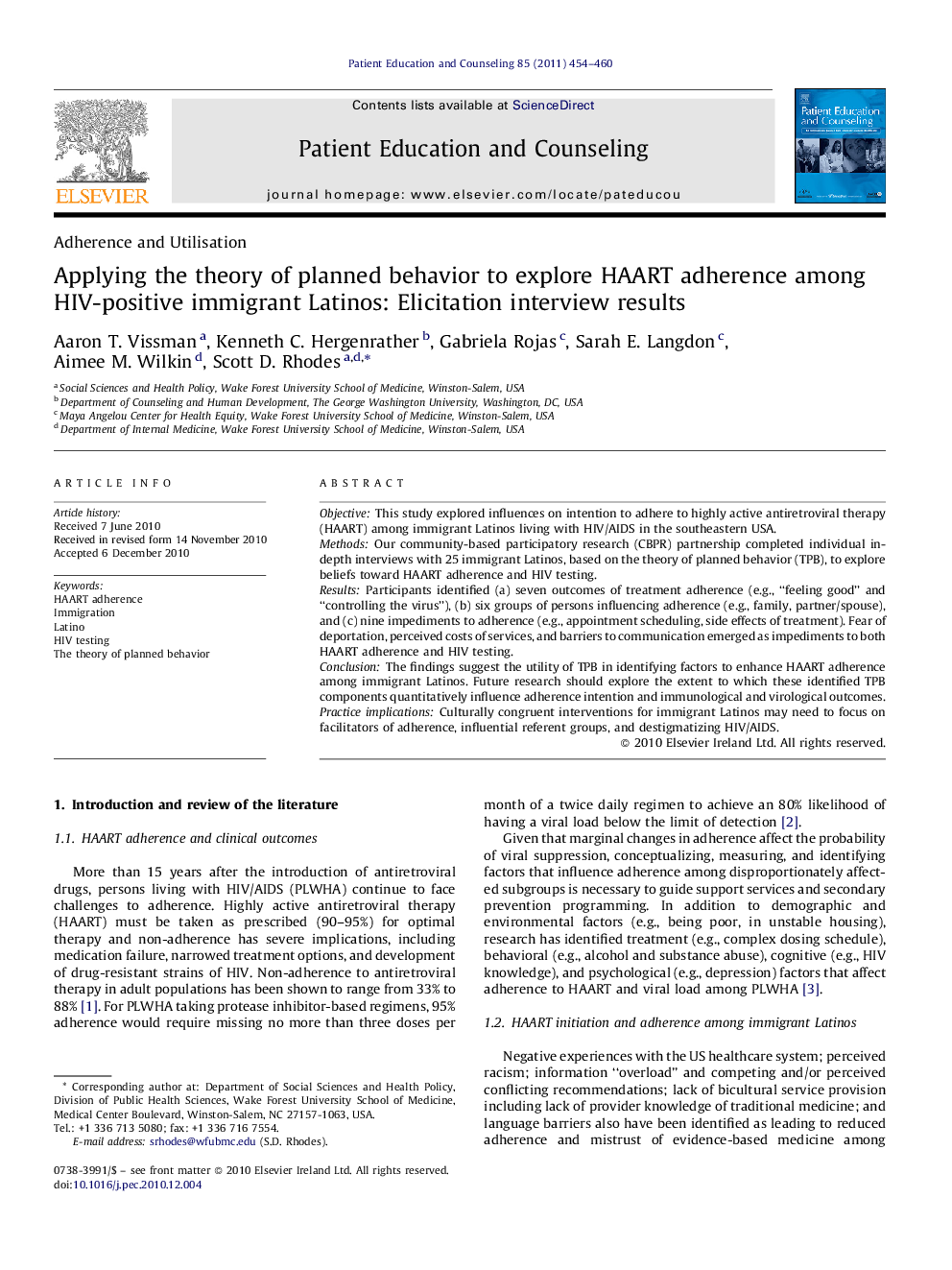| Article ID | Journal | Published Year | Pages | File Type |
|---|---|---|---|---|
| 6153855 | Patient Education and Counseling | 2011 | 7 Pages |
ObjectiveThis study explored influences on intention to adhere to highly active antiretroviral therapy (HAART) among immigrant Latinos living with HIV/AIDS in the southeastern USA.MethodsOur community-based participatory research (CBPR) partnership completed individual in-depth interviews with 25 immigrant Latinos, based on the theory of planned behavior (TPB), to explore beliefs toward HAART adherence and HIV testing.ResultsParticipants identified (a) seven outcomes of treatment adherence (e.g., “feeling good” and “controlling the virus”), (b) six groups of persons influencing adherence (e.g., family, partner/spouse), and (c) nine impediments to adherence (e.g., appointment scheduling, side effects of treatment). Fear of deportation, perceived costs of services, and barriers to communication emerged as impediments to both HAART adherence and HIV testing.ConclusionThe findings suggest the utility of TPB in identifying factors to enhance HAART adherence among immigrant Latinos. Future research should explore the extent to which these identified TPB components quantitatively influence adherence intention and immunological and virological outcomes.Practice implicationsCulturally congruent interventions for immigrant Latinos may need to focus on facilitators of adherence, influential referent groups, and destigmatizing HIV/AIDS.
